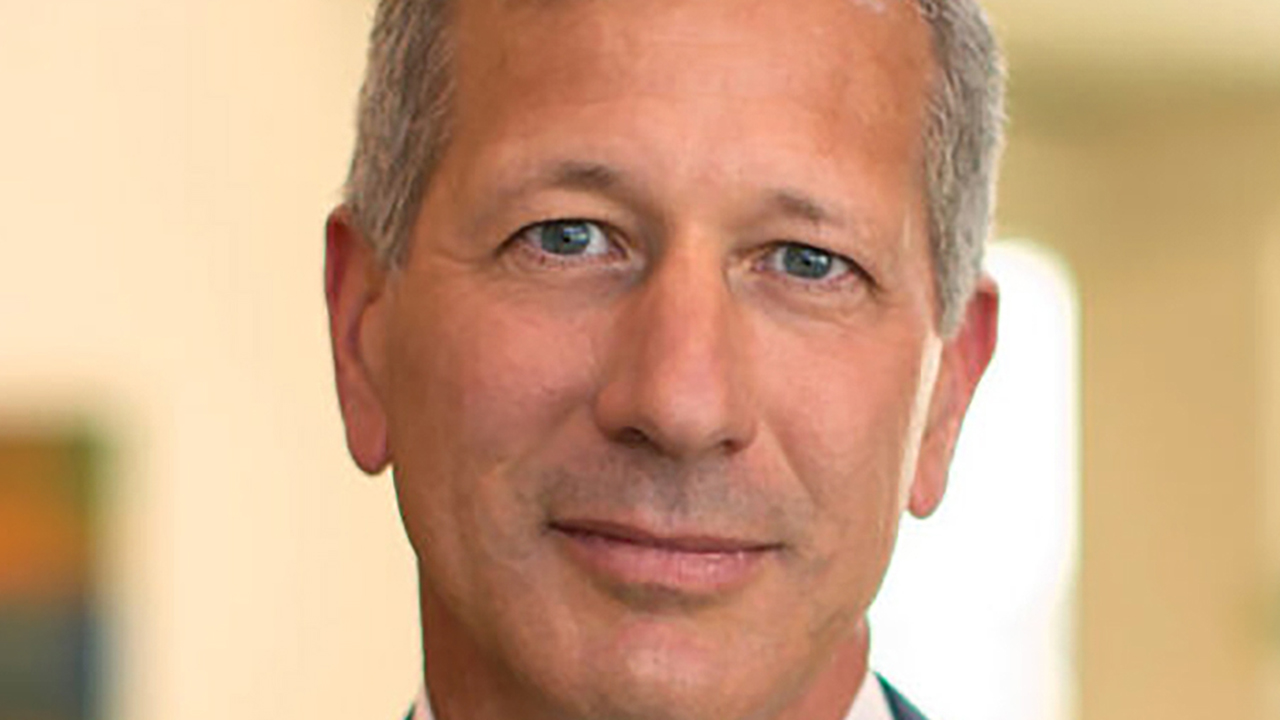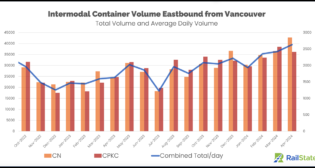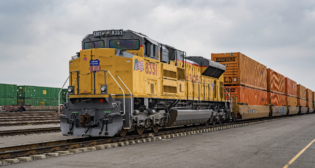
It’s Tough to Run a Railroad
Written by David Nahass, Financial Editor
Lance Fritz
FINANCIAL EDGE, RAILWAY AGE SEPTEMBER 2023 ISSUE: It has been a tough summer for North American rail. There’s the ongoing scrutiny of potentially intimidating practices of the railroads against whistle blowers. Then there’s the continued languishing pace of freight levels, which halfway through the year continued to be weighed down by intermodal contraction. There’s the additional intermodal loadings pressure potentially originating in U.S. attempts to decrease reliance on China as its importer of choice. There are service disruptions related to tropical storm Hilary’s aftermath. There is the ongoing scrutiny of the post-East Palestine derailment cleanup.
That is quite a burden to be carrying through the hot summer months. One other news item that grabbed its share of the summer headlines is the end of the Lance Fritz era at Union Pacific. The actual transition happened quietly on Aug. 14. As noted in Railway Age, Mr. Fritz’s job as Chairman, President and CEO was split into three positions: Chief Executive Officer and member of the Board, President, and Chairman of the Board.
So what’s in a name? Or rather, what’s in a title? The July 26 announcement of the split caused a 20% pop in the price of UP stock. While the stock has given back some of those gains, it was an eyepopper during a time period while railroad stocks have mostly been languishing through 2023.
Mr. Fritz was an oft beleaguered figure and leader. He was a lifetime railroader who occasionally couldn’t get the massive railroad he ran out of its own way. It was a topic occasionally covered and discussed by “Financial Edge.”
The proof is in the stock price (or as Bill Parcels might say, you are what your stock price says you are). At the 2023 Rail Equipment Finance Conference, Jose Liberti (REF 2023’s opening Keynote Speaker) mentioned that from 2009 to 2021, UP returned investors a whopping 763%. Mostly, that return happened between January 2009, when UP was as low as $18.77 a share, up until February 2015, when UP stock was as high as $124.52 a share. February 2015 was the beginning of Mr. Fritz’s tenure as President and CEO (his role as Chairman started in October 2015). In the period from February 2015 until August 2023, UP returned investors roughly 72% while CSX returned investors 203% and Canadian Pacific returned investors 130%, the math on the latter being slightly askew if one was a shareholder of Kansas City Southern pre-merger.
More impactful perhaps is the downside: Railroad stock prices had a near-term peak in April 2022. Compared to that peak (and prior to its executive change), UP was down 26%, CSX 10% and CP 2%. CSX changed its chief executive in September 2022 and CP pulled together what may be the last Class I merger of your erstwhile correspondent’s lifetime. (NS changed CEO in May 2022 and CN changed in February 2022.)
This is not to suggest that Mr. Fritz was ineffective in his role at UP. Nor does it suggest that the trio of Mike McCarthy, Jim Vena and Beth Whited is or will be, as a result of a bump in the stock price, any more or less successful. The suggestion here is quite to the contrary.
Perhaps the board of directors should have split Mr. Fritz’s role earlier in his tenure rather than waiting to do so upon his retirement. UP’s splitting of Chairperson and CEO (and President) is following a corporate trend that has been gaining momentum for some years. Outliers to the separation movement are Bank of America (probably the largest remaining) and Microsoft (which combined the roles in 2021). While precise return-related data is difficult to come by, some evidence suggests that under stressful circumstances, splitting the Chairperson and CEO roles improves corporate focus and stock prices.
UP has been the target of customer complaints (and litigation) and regulatory scrutiny, most especially during the last years of Mr. Fritz’s tenure. The railroad’s board might have done well to make this decision when the STB began to more aggressively question all the U.S. railroads’ commitment to service rather than waiting until Mr. Fritz’s retirement.
An earlier decision would have sent a message to the industry that UP was viewing its customer and STB Chairman Oberman’s scrutiny with appropriate gravitas. Instead, their recent decision leaves shareholders and customers wondering whether the reason to ask, “What took you so long?” relates to Mr. Fritz’s performance or to the board of directors lacking a clear vision about UP and its role in the market. Lance Fritz deserves a better sendoff and legacy than the message the board has delivered as he is hanging up his hardhat and steel-toed shoes.
Got questions? Set them free at [email protected].



